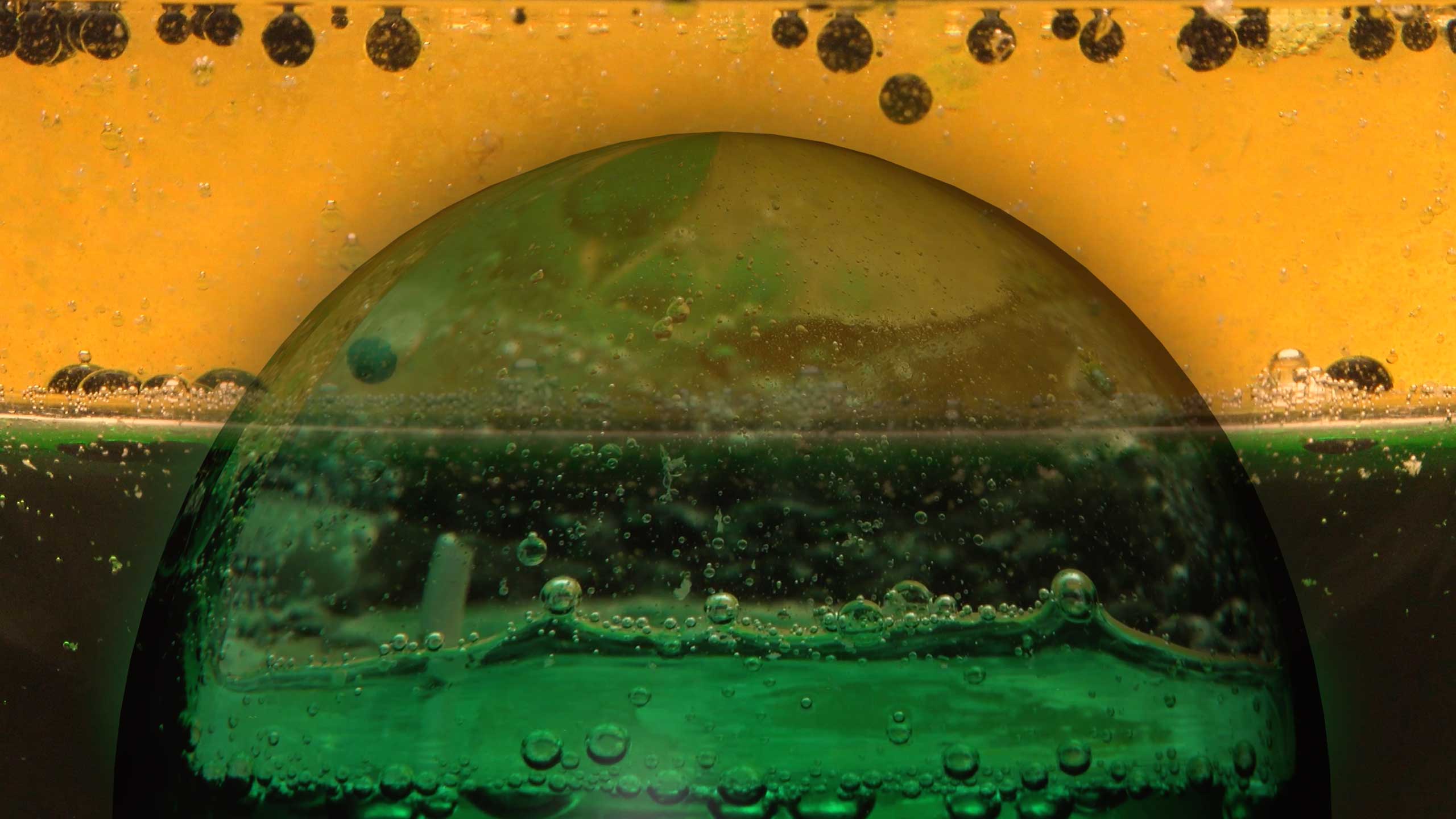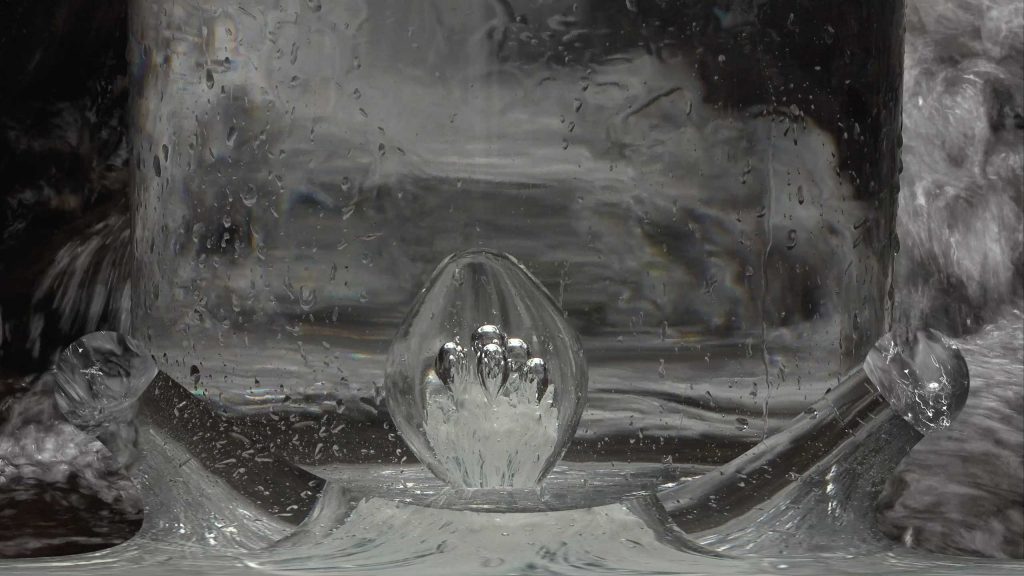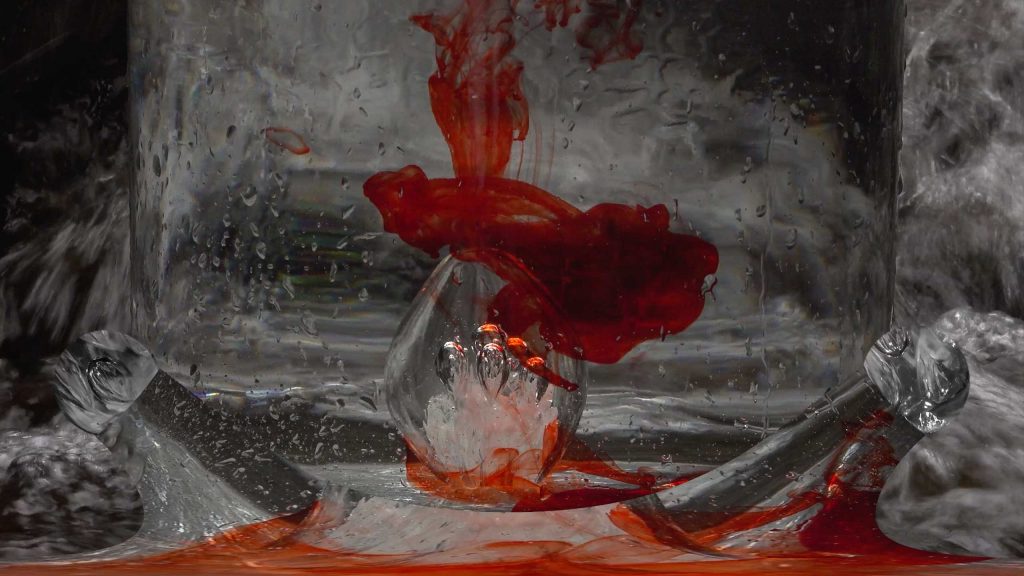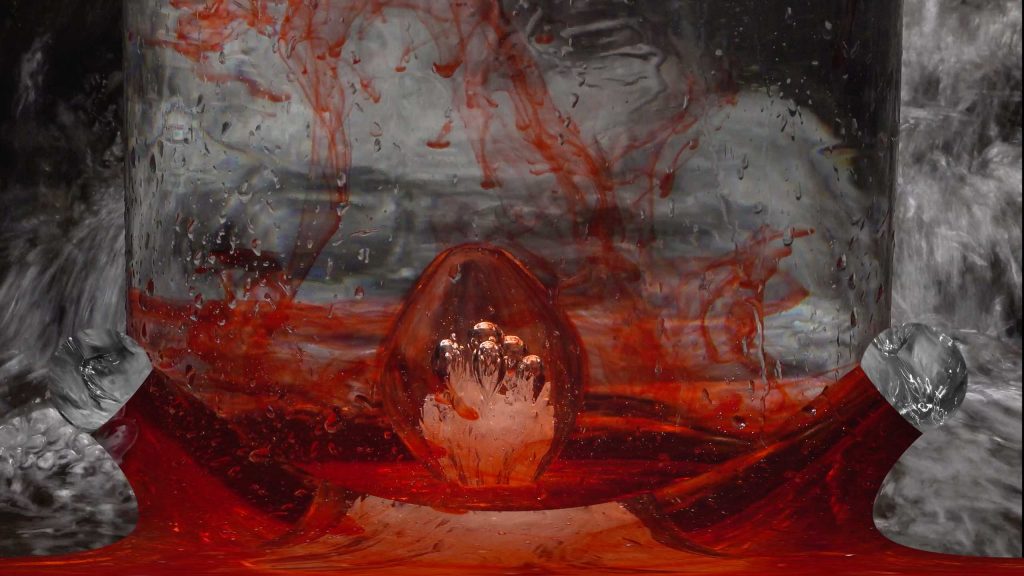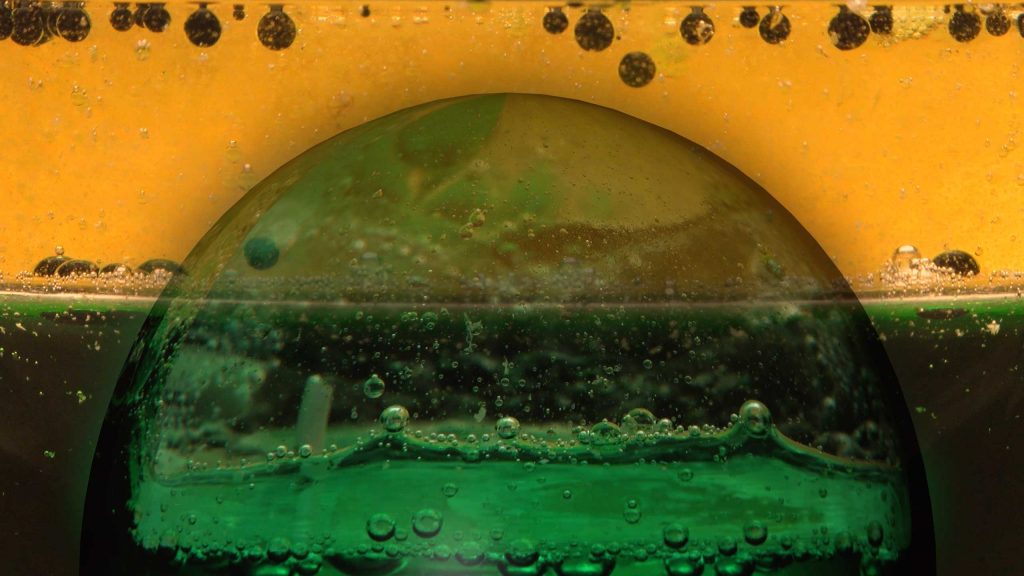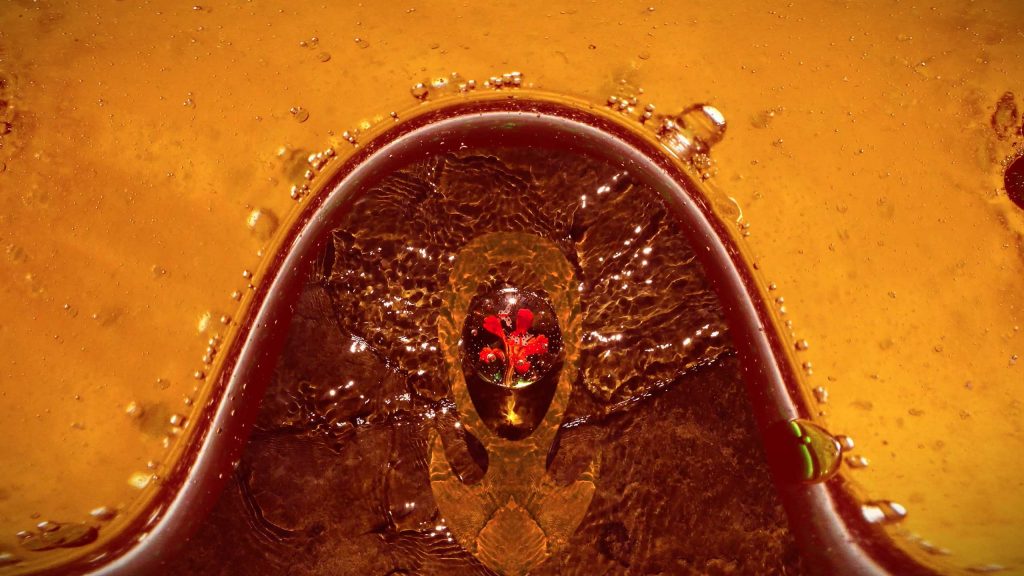To read George Orwell’s 1984 was terrifying. Towards the end the scenes of torture crept into our dreams and the realization that every idea and every human, if tortured long and severely enough was corruptible, was turning nihilism a reasonable concept. Why even try to be someone, why do anything? There was no titanium core to withstand this sort of all encompassing, institutionalized violence, there was no space for truth in an environment so densely packed with lies, no future would ever grow out of a present so thoroughly cleaned from its past. The only thing that was there – how strange – was that little glass blown paperweight with a piece of coral inside.
In the book, Winston the main character, illegally purchases a glass blown paperweight in an antique shop, which takes on several symbolic meanings throughout the story – it’s an unalterable object that represents the past as something reliable that cannot constantly be manipulated, it symbolizes the precious bubble, which Winston and his lover Julia share, when they meet secretly (so they think) in the room above the antique shop, it’s a safe space to dream, it’s something magical and beautiful, something Winston can physically hold onto.
Eventually, Winston and Julia are being arrested in their hideout, and the paperweight is smashed into pieces on the hearth-stone by their perpetrators. “How small, thought Winston, how small it always was!” Something about this smallness, something about this sentence in the book, crushed something big inside of us so badly, we suddenly felt the physical urge to get a hold of a paperweight.
We called a friend. First he wasn’t sure he had one, but a few days later he texted, he had located it. Where, we asked, when we came to pick it up. “I found it on my desk,” he said.
The paperweight was shaped like an egg, with its bottom shaved off. It fit perfectly into our hands, its heaviness felt grounding, and so did its fragility. It was precious. We held it up against the blue sky and then moved it in front of the sun. White glass flames shot dynamically out of the bottom, transparent air bubbles danced on top. Everything was still, frozen in a technological eternity. The object was perfect, most likely because it was dead and would not rot.
We walked to the spot where the sun turns the water in the creek behind our house into a spectacle of glittering patterns, placed the paperweight into a shallow spot in the rock bed and watched how the water flowed around it. Neither the paperweight, nor the glittering water waves and ripples seemed dramatically affected by each other’s presence. Our philosophical idea to place eternity into the flow of change seemed flawed, our urge to hold onto something unchangeable seemed flawed. Standing in the creek, flawed seemed to be the right word, there was truth in being flawed, we thought and went back into the house.
History Waits, 6:10min, 4K Video, edition of 6, 2024
The temperature dropped overnight by about ten degrees Celsius and we woke up on February 17, 2024 to the news that Alexei Navalny had died in a Russian prison above the Artic circle. The sun was covered behind a thick layer of clouds, the air was humid and cold and when we got to the creek in the morning, it began to snow. We filled a glass jar with water, placed it on a rock in front of a small waterfall, put the paperweight inside and dropped red food-coloring into the jar. To the left and the right of the rushing water hung thick sheets of frozen crystals and icicles, so the water temperature must have been just around the freezing point, the moment where things come to a temporary standstill, the point where water ceases to be water and turns into ice. Was that the point when a human could turn into a hero? History is watching, we thought, as the swirls of red color slowly laid themselves around the paperweight and tinted the whole scene red. Yet, as we kept watching we realized, it wasn’t history, it wasn’t the Internet, or the news being the record keepers, it was us, who were seeing these things.
Two days later, on Monday Feb.19, Yulia Navalnaya published a video statement that included a quote from Alexei Navalny, which said: “It is not shameful to do little things. It is shameful to do nothing. It is shameful to be intimidated.”
Green Dome, 01:39min, 4K Video, Edition of 6, 2024
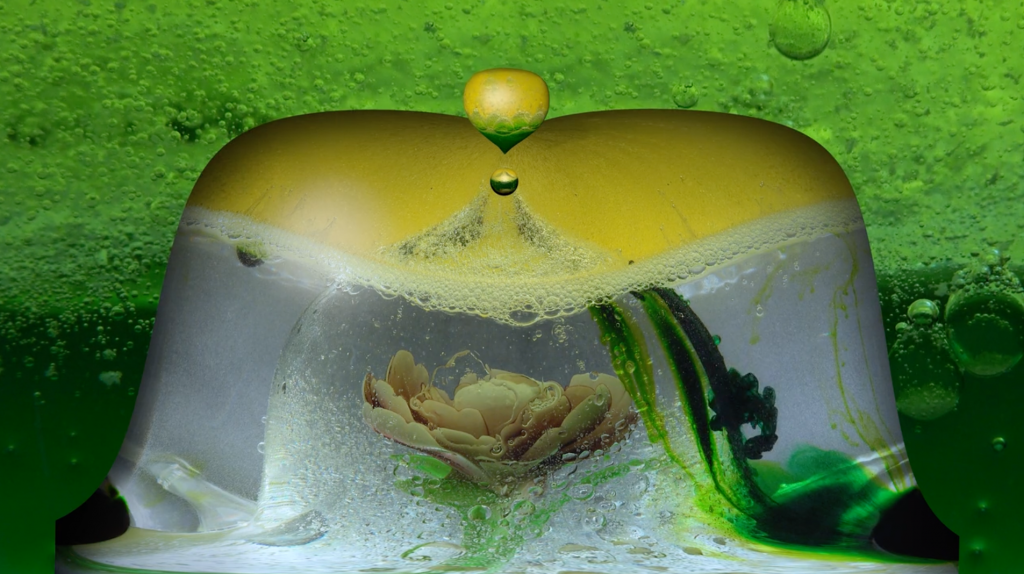 Dead Beauty Forever, 01:52, 4K Video, Edition of 6, 2024
Dead Beauty Forever, 01:52, 4K Video, Edition of 6, 2024
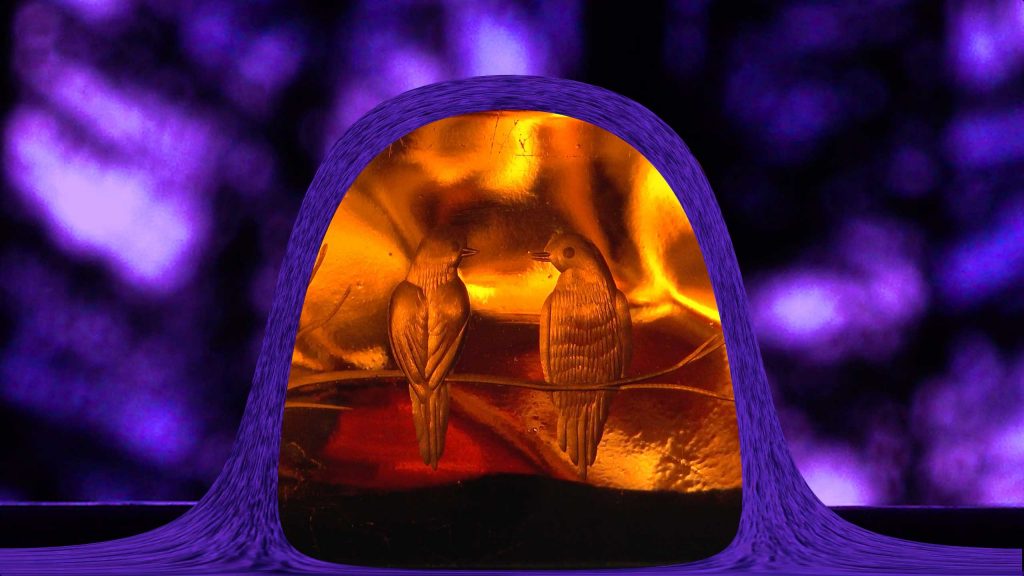
Fire Birds, 2:18, 4K Video, Edition of 6, 2024
Drying out the Sun, 01:13min, 4K Video, Edition of 6, 2024
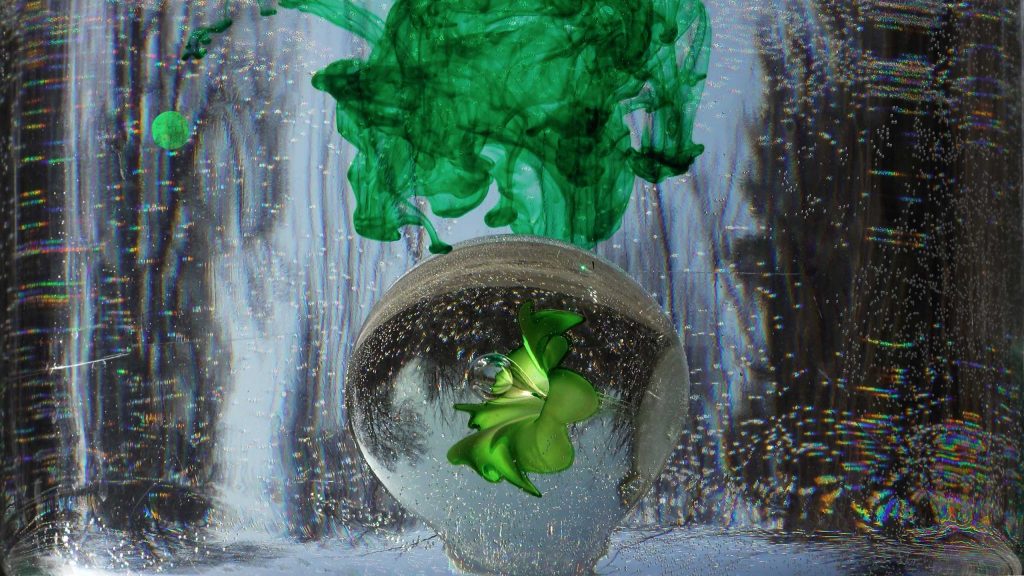
Greenhouse, 01:33, 4K Video, Edition of 6, 2024
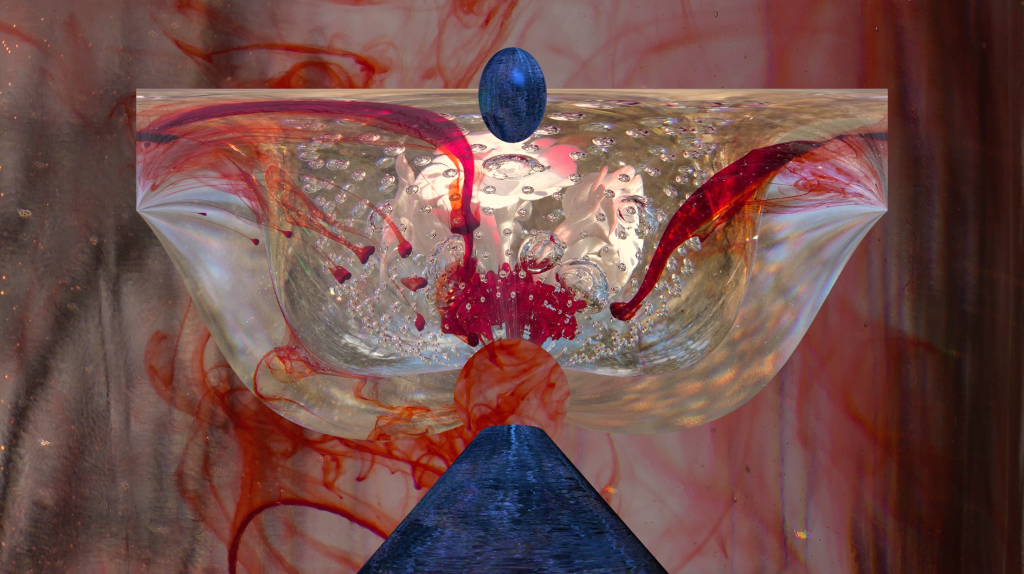
Flow of Reproduction, 01:17min, 4K Video, Edition of 6, 2024
Waterweights is an edition of digital video-sculptures that can be purchased on seditionart as authenticated digital artworks or as NFT’s.
